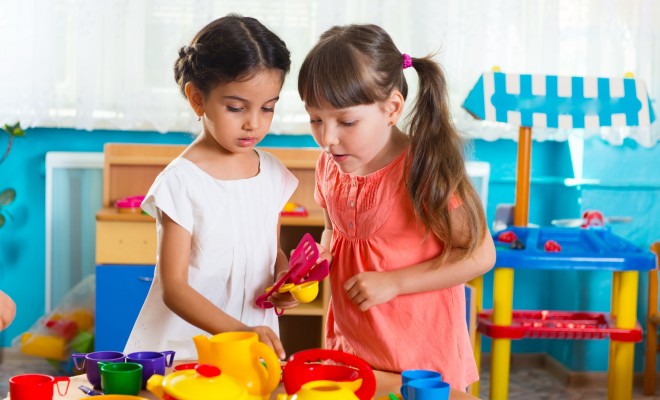
Childcare Activities
Alistair Bryce-Clegg’s 5 Ideas for Promoting Child Independence
One of the key roles of any setting is to build a child’s confidence in their own abilities, to empower them with the independence they’ll need in the years ahead. So to help you do just that, we’ve teamed up with educational consultant Alistair Bryce-Clegg to bring you five of the best ideas from his book “50 Fantastic Ideas For Promoting Independence“.
But that’s not all – we’re giving away a bumper selection of the equipment featured in this article! Enter our competition below for a chance to win a fantastic promoting independence package, including a doctors role-play kit, magnifying glasses, fabric, play mirrors, paint, paintbrushes, and laminating pouches.
5 Ideas to Promote Child Independence
1. Self-Service Paint Area
What you need
- Pump dispensers (like liquid soap)
- Small pots
- Ready-mixed paint
- Brushes and sponges
What to do
- Decant the ready-mixed paint into the pump dispensers.
- Show the children how to squirt the paint into the pots or mixing palettes.
- Let them use the paint independently for creative designs.
Taking It Forward
- Talk to the children about how many pumps they should use at one time.
- Offer the children a range of other ingredients like flour or porridge oats that they can use to add thickness or texture to their paint.
What’s in it for the children?
The children are not only learning about paint, texture and colour but this provision also supports them in being very self sufficient.
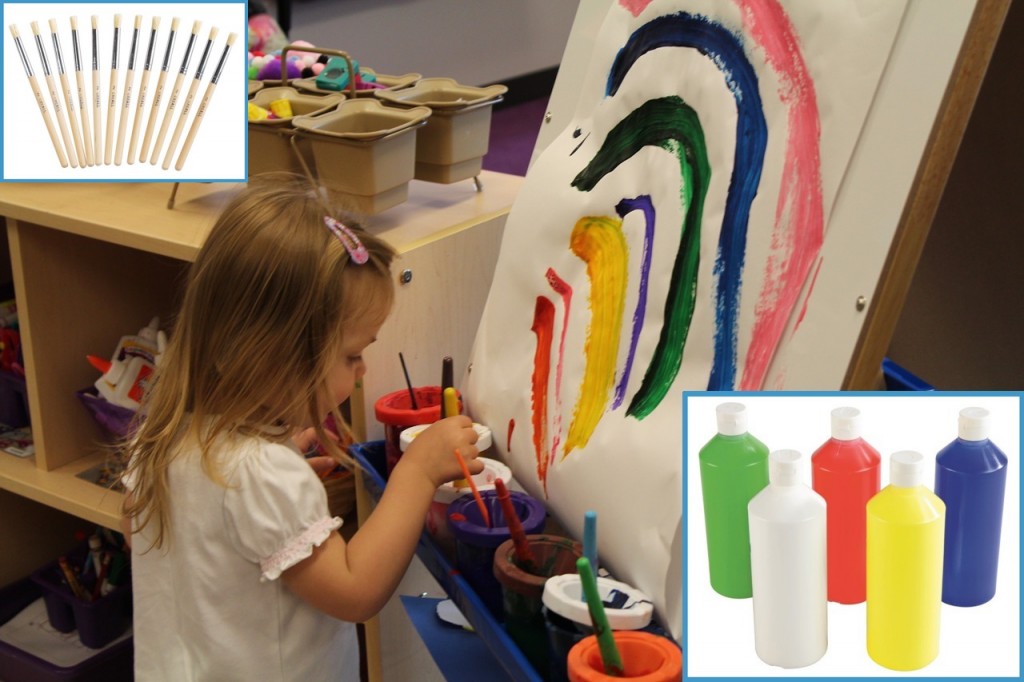
2.Message Board
What you need
- Coloured paper
- Laminating pouches and laminator
- Name cards
- Child height display space
- Sticky notes
What to do
- Cut the coloured paper into rectangles, one for each child.
- Add each child’s name to one rectangle.
- Laminate the rectangles.
- Mount your rectangles together on your display space message board.
- Encourage the children to send each other messages throughout the day by putting a sticky note on their friend’s message board.
- Adults can also use the board to send messages to children.
Taking It Forward
- Add a photograph to the name on each board to help the non-readers.
- You could enhance the display by adding talking postcards or talking tins so that children could leave a voice message.
What’s in it for the children?
This is a great activity to promote communications as well as reading and mark making. Children who are non-writers can leave a smiley face (or similar) for their friends.

3. Deconstructed Role-play
What you need
- Large and small cardboard boxes
- Baskets
- Milk and bread crates
- Cardboard tubes
- Fabric
- Hats and mirrors
What to do
- Make a collection of open-ended resources like boxes and tubes.
- Place them in a large open space.
- Encourage the children to use their imagination to turn these open-ended resources into specific play experiences that are meaningful to them.
Sign Up to Receive this 20-Part Activity Email Series
Taking It Forward
- Create a deconstructed role-play area indoors and out.
What’s in it for the children?
If children do not have a great deal of personal experience of a role-play space that they have set up, then they are going to struggle to play in it without adult support, often reverting to playing ‘house’ or ‘super heroes’. A deconstructed role-play area supports any play theme because of its open-ended potential.
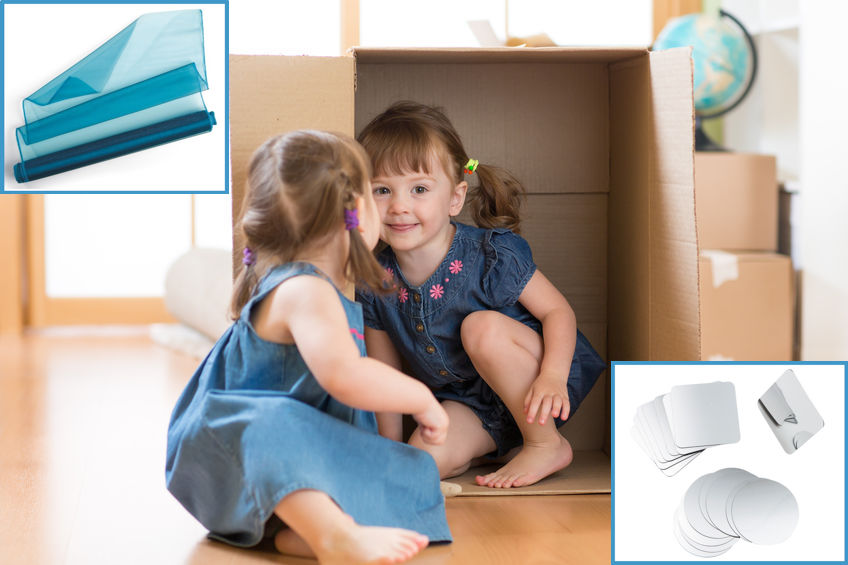
4. Role-play Enhancement Baskets
What you need
- Basket or box
- Resources that are themed around a specific interest e.g. doctor, builder or vet
- Books to support and enhance the theme
- Mark making materials
What to do
- Identify themes that you wish to cover in your role-play.
- Identify key areas of interest for children that they have expressed through their play.
- Create an enhancement basket of resources to support these themes.
- Take the enhancement baskets into your deconstructed role-play area to support children’s learning.
Taking It Forward
- It is always a good idea to have a ‘home’ enhancement box in your deconstructed role-play area as this is a familiar play experience for all children.
What’s in it for the children?
Enhancement baskets support the development and consolidation of children’s play in an area that they are familiar with or interested in. If an adult has created an enhancement basket to support a taught theme that the children are not familiar with such as ‘the vet’s’ then the adult can use these resources in the deconstructed role-play area to introduce appropriate language without over-theming.

5. Outdoor Investigation Station
What you need
- Fabric bags, pockets or pouches
- Magnifying glasses
- Collecting jars
- Mark making materials
- Clipboards
- Cups, bowls, spoons and containers
- Cushions and mats
What to do
- Set up your investigation area in an open space outside where the children can have clear access to all the resources.
- Fill your bags and pouches with tools to help the children investigate and explore this outdoor space.
- Encourage them to record their findings and experiments.
Taking It Forward
- For extra independence you could also add a self service snack/drink area to your investigation station. Use water containers with a tap and a table for the snacks.
What’s in it for the children?
Children will have the opportunity to work on their own or in a group to investigate their outdoor surroundings. They will be able to collect, examine and create the things that they find.
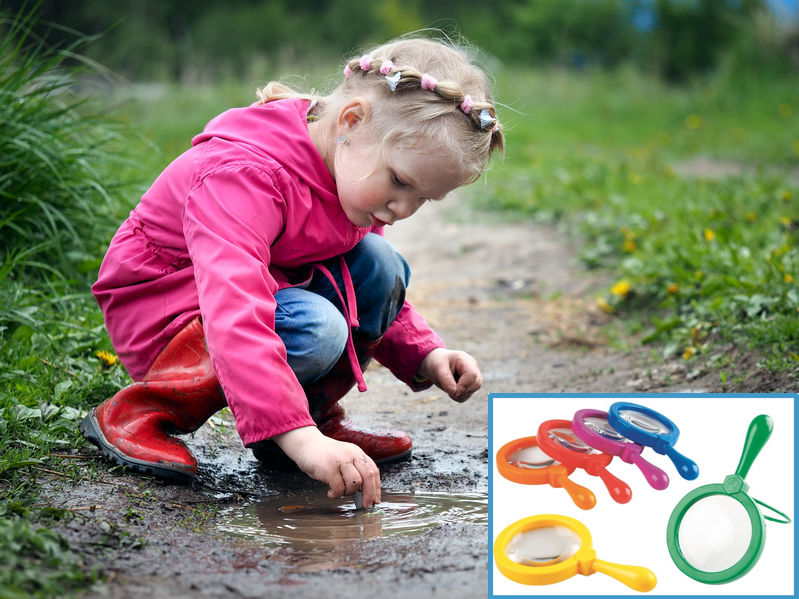
Alistair enjoyed a successful 10 year career as the Head teacher of three-form entry Infant school and Early Years Unit in Cheshire. Alongside his headship, he established a consultancy career specialising in the education of children in the Early Years.
Demand for his consultancy became so great that Alistair left headship and established ABC Does… (abcdoes.com).
Most of his time is spent supporting practitioners in their settings or delivering key notes and training, specialising all aspects of Early Years practice and management for both the maintained and non-maintained sectors nationally and internationally.
Alistair is also an award-winning author and product designer, whose work has been published in a number of books and magazines. Alongside support and training for a range of settings and schools, Alistair also works Internationally and with Local Authorities across the UK.


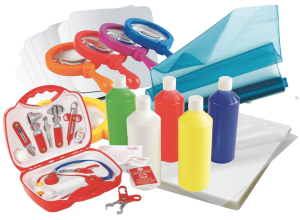
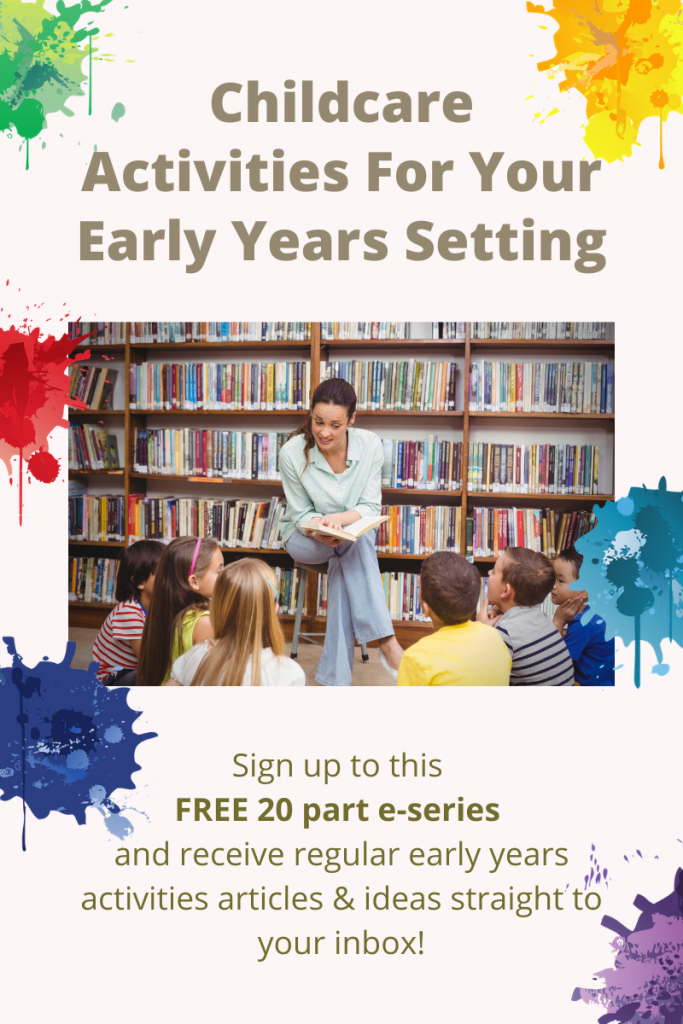

You must be logged in to post a comment Login